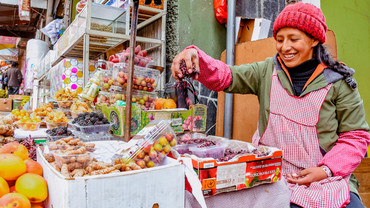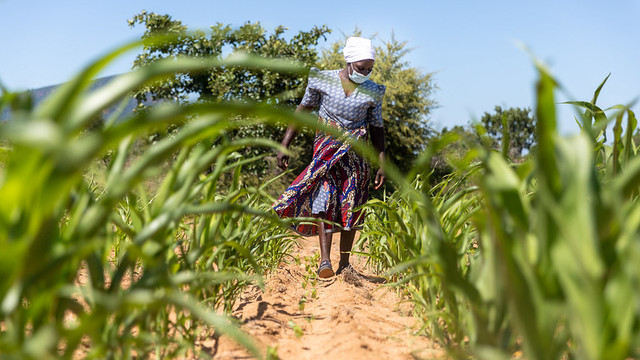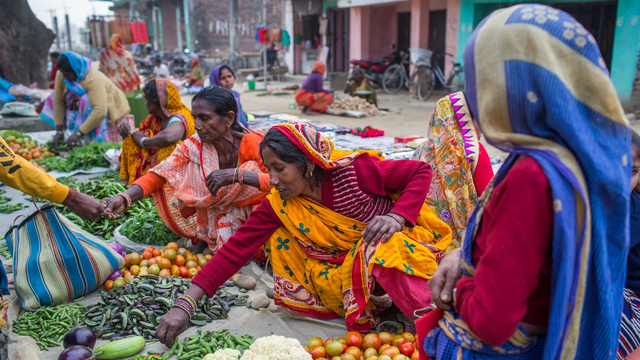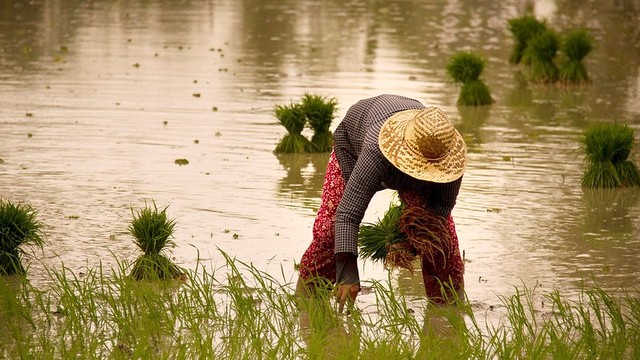Food systems of the poor: shaping the agenda for the Food Systems Summit
In the lead up to the UN Food Systems Summit in 2021, this online IIED event on 25 November explored how food systems transformation can be relevant for people living in poverty.
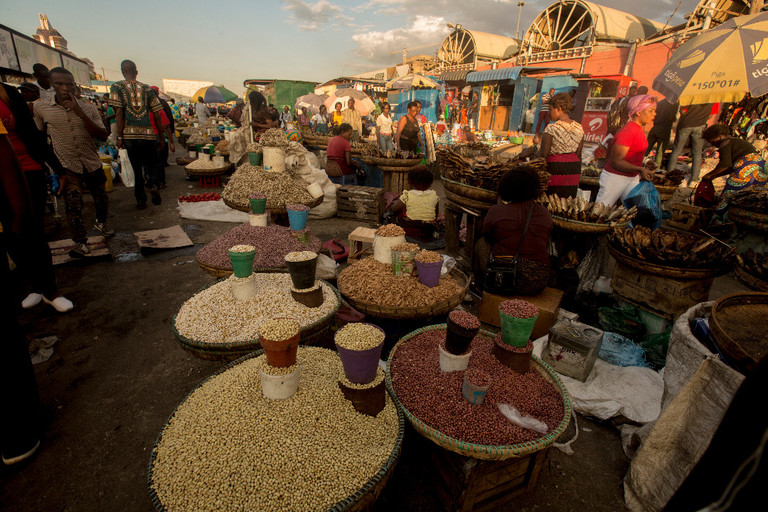
Women account for almost 90% of vendors in the capital Lusaka, the largest city of Zambia (Photo: copyright Salim Dawood/Hivos)
The world is producing more food than ever, but hunger and malnutrition persist, and production methods are harming our natural environment. A better food system is needed, but we need to ensure that it works for consumers in low-income countries.
The UN Secretary-General will convene a Food Systems Summit in 2021 to "launch bold new actions to deliver progress on all 17 SDGs, each of which relies to some degree on healthier, more sustainable and equitable food systems".
The summit brought together leaders, experts, academics and a range of food system actors and citizens to raise awareness, mobilise people, measure progress, and identify actions to achieve the Sustainable Development Goals (SDGs) related to food systems.
The summit comes at a time when the failings of the global food system are becoming increasingly apparent. The world is producing more food than ever, but hunger and malnutrition are persistent. The increasing consumption of meat and highly processed foods is taking a toll on the health of millions. Furthermore, farming and food production are big drivers of climate change, the loss of biodiversity and deforestation.
The path towards alternative food systems has been dominated by ideas and actors of the global North, with industrialised food systems and a large middle class of consumers in mind. But in the global South supply chains are largely informal, and most consumers survive on low incomes. The challenges, needs, and policy levers in these food systems of the poor are distinct.
The Sustainable Diets for All programme, led by IIED and Hivos, has been calling for food system leaders to rethink the role of informal markets within the sustainable food system agenda.
This IIED Debates event explored the specific challenges of food systems in low-income countries in the lead up to the Food Systems Summit next year. Is a food system transformation also necessary in the global South? If so, what would it look like? And how should it be achieved?
In this event we heard from leading experts on food systems, nutrition and informality. We also got the perspective from civil society organisations and donors about their hopes and expectations for the food summit.
Event coverage
You can watch a video recording of the complete event below and on IIED's YouTube channel.
To learn more about our work on this topic, download our recent publication on ‘Sustainable diets in the informal economy’.
About the speakers
Andrew Norton (opening remarks) is director of IIED. He is an applied anthropologist working on a range of issues related to social and environmental justice.
Jessica Fanzo, PhD, is the Bloomberg distinguished professor of global food policy and ethics at the Berman Institute of Bioethics, the Bloomberg School of Public Health, and the Nitze School of Advanced International Studies (SAIS) at the Johns Hopkins University in the USA. She also serves as the director of Hopkins’ global food policy and ethics program, and as director of food & nutrition security at Hopkins’ Alliance for a Healthier World. She is the editor-in-chief for the Global Food Security Journal and leads on the development, in collaboration with GAIN, of the Food Systems Dashboard.
Jane Battersby is associate professor at the African Centre for Cities at the University of Cape Town, where she heads up the food security and food systems cluster. She serves on the Independent Expert Group of the Global Nutrition Report and regularly consults and advises local, provincial and national governments, NGOs and civil society groups on food issues in the African context.
Immaculate Yossa Daisy is the regional advocacy manager for Uganda-East Africa at Hivos. She has over 12 years’ experience in coordinating and implementing advocacy programmes, campaigns and actions at local, national and regional levels, aimed at influencing government policy, programmes and plans. She has in-depth knowledge and experience in advocacy, policy analysis, gender, programme management and management of multi-stakeholder processes.
About the series
This event is part of the IIED Debates series. Through the convening of expert speakers and external stakeholders, IIED brings together an international community to discuss critical issues.
IIED Debates encompass both physical and digital events, including critical themes, breakfast debriefs and webinars. These events are public and are hosted regularly throughout the year in our London and Edinburgh offices and online.
IIED events newsletter
Sign up to our mailing list for updates and invitations to events throughout the year, including webinars, critical themes and debriefs.
Contact
Juliette Tunstall (juliette.tunstall@iied.org), IIED's internal engagement and external events officer
